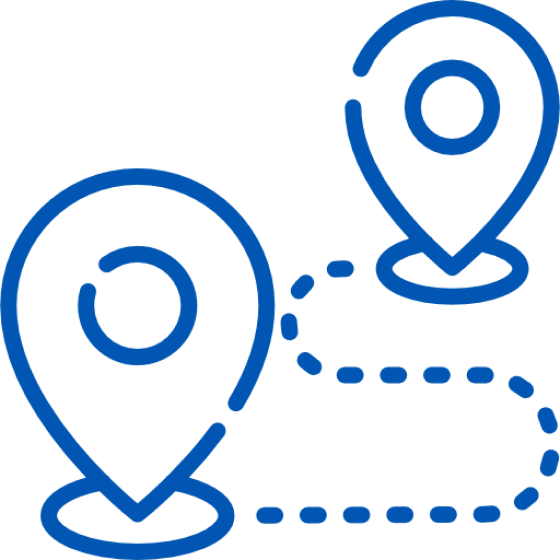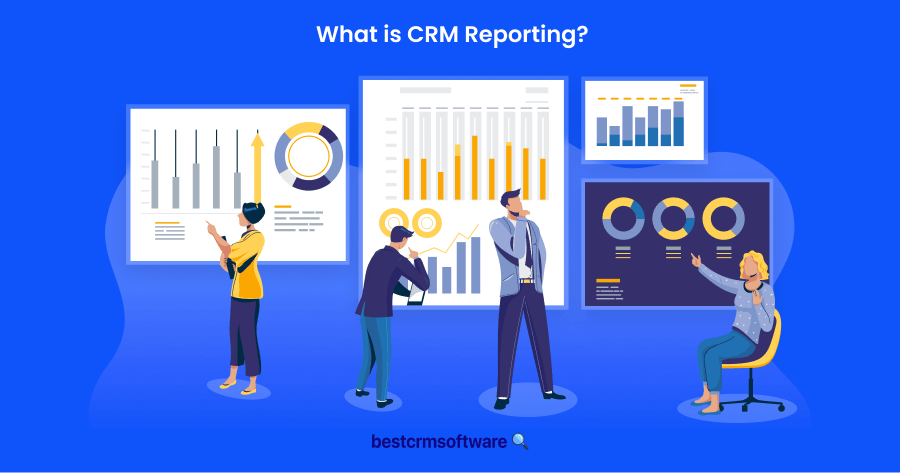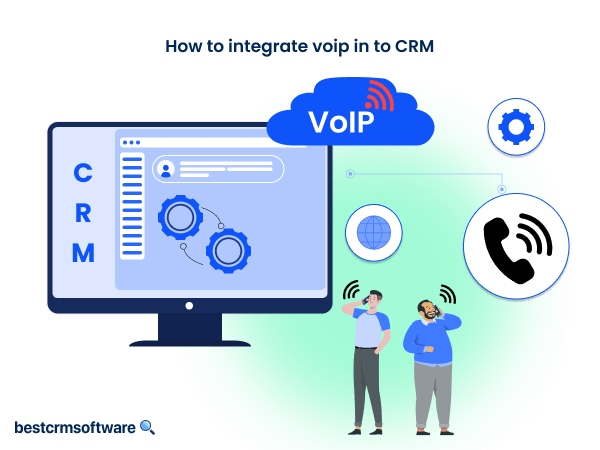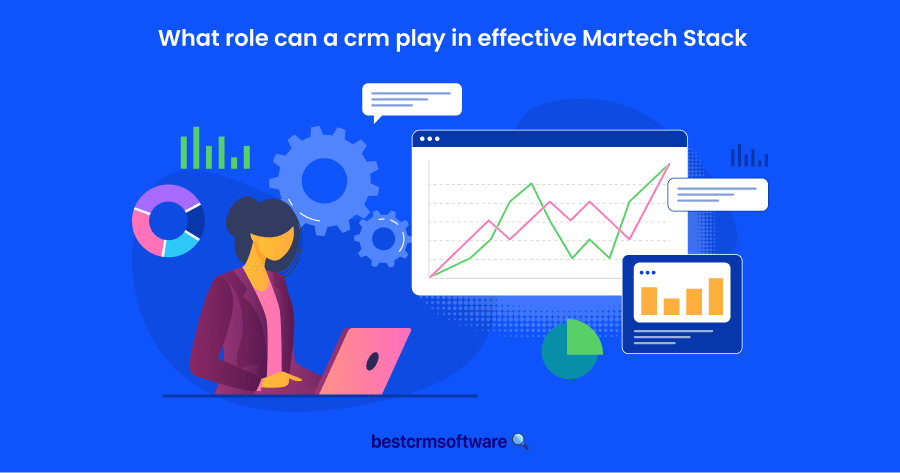
Best CRM Software for B2C
In a Nutshell
Are you looking for an exceptional CRM tailored for your B2C organization? In my experience as a CRM manager, I’ve researched, reviewed, and tested many customer relationship management systems. The five below are the most fitting CRM platforms for big and small B2C firms.
Opting for the business-to-consumer (B2C) process can significantly cut costs for new businesses. However, luring customers can also be enormous work. Storing your business data on various platforms makes analyzing, interacting, or managing your customers difficult. Can you separate the old from the new with potential customers? The advancement of technologies has brought B2C CRM software to make things easier.
5 Best CRM Software for B2C Shortlist
For the best CRM for B2C, I recommend the following software:
Why You Need CRM For B2C
Because direct-to-consumer businesses don’t involve an intermediary to reach buyers, they tend to have to deal with large sums of customer interactions. With advanced technologies influencing much of what goes on in organizations today, customers expect fast customer interactions. If your business isn’t equipped enough for that, then competitors are.
So, without the best CRM for website, lead generation and consumer management can be tricky. With a CRM platform, your business’ leads and customer data are stored in one place. Consequently, CRM gathers the information into analytics that you can use for evaluation and tracking progress.
CRM systems feature many resources to help you build strong relationships with your consumers, save time and cut unnecessary costs, improve efficiency, increase profits through sales, and keep your employees and buyers happy.
Below are in-depth reviews of the top five CRM tools for B2C businesses. I’ve highlighted each website’s features and their benefits and setbacks. Comparing features and weighing pros and cons can be of great assistance in picking the Best B2C CRM.
Top 5 CRM Solutions for B2C Businesses
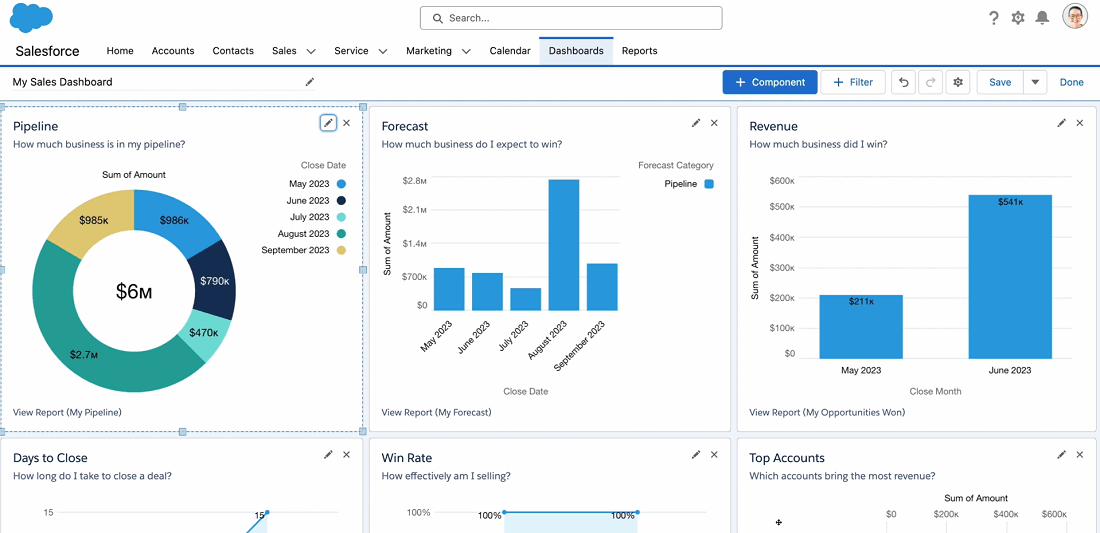
Salesforce is one of the leading CRM platforms in the world. It’s arguably the best CRM software for inside B2C sales.
Why I Like It
Salesforce CRM consistently provides B2C organizations with tools that mainly focus on the customer. I like that the platform uses the advancement of technology to effectively connect to existing and potential consumers at an emotional level. Its features work efficiently in driving sales for small and large B2C firms.
Most Important Features for B2C
Salesforce tracks customer sales journeys efficiently, which allows the sales team to use all the provided data to keep the customer happy. It also provides instantaneous updates on your buyers’ actions. This gives you an idea of what needs they need addressed. The multi-channel integration of social media platforms, email, and other communication platforms then comes in to help you approach and interact with them.
Pros
- Data management features are customizable
- Has a 30-day free trial
- User-friendly interface
Cons
- Not the most affordable option for new businesses

Pipedrive has been around for over a decade and has remarkable achievements to show for it. One of its main goals is to empower small businesses. Hence, it’s the best B2C CRM marketing for small business website platforms.
Why I Like It
This CRM updates its technological abilities regularly to manage your business data effectively—allowing your staff to focus on following quality and building rich connections with buyers. I also appreciate the site’s “Community,” “Knowledge Base,” and “Academy” as they make it the best CRM for B2C online education business.
Most Important Features for B2C
Pipedrive has AI-powered features that allow smooth work and give you time to close more deals. Some of these features include an AI sales assistant that uses automation to suggest activities to prioritize and recommend potential buyers. In addition to this, there are AI-powered email-generating and summarization tools.
Pros
- Suggests safe AI-powered apps to integrate and decrease manual labor
- B2C businesses increase sales by an average of 28% after joining
- Have strong security measures in place to protect your business data
Cons
- Phone support isn’t available on some plans

Although Monday.com is famous for its management tools, the platform also features a sales CRM. It’s a straightforward software with affordable price plans, making it ideal for new small businesses.
Why I Like It
I like that the Monday Sales CRM is available on the mobile app. It makes it even more convenient for a small business owner to track and manage sales at any chance. It also offers other valuable products, work management, and product development for small businesses to grow.
Most Important Features for B2C
Monday Sales CRM offers straightforward yet effective services to drive sales. These include automation, data visualization, and a 100% customizable dashboard. With these tools, you can collect leads, move deals between stages, access customer log activities and manage ongoing sale and post-sale activities.
Pros
- 100% customizable to suit your work style
- Low-code platform that accommodates non-tech savvy users
- Affordable plans
Cons
- Not suitable for large organizations

Although Zoho is primarily a B2B CRM software, you can customize it to suit your B2C needs. It is the best free CRM for B2C marketing among the five platforms, as it grants free access to organizations with limited users.
Why I Like It
Zoho allows users to integrate over 800 third-party apps to help your sales team work seamlessly. Finding apps to merge with this CRM is easy as they’re listed on the website marketplace.
Most Important Features for B2C
The Zoho B2C CRM can store large sums of data and process it quickly. Its essential B2C features like automation, rich analytics, and AI Zia’s accurate sales predictions make this possible.
Pros
- Over 800 third-party apps can be integrated
- User-friendly website with a modern interface and features
- Free for an organization with up to three users
Cons
- You have to go through the process of customizing the platform from B2B to B2C CRM
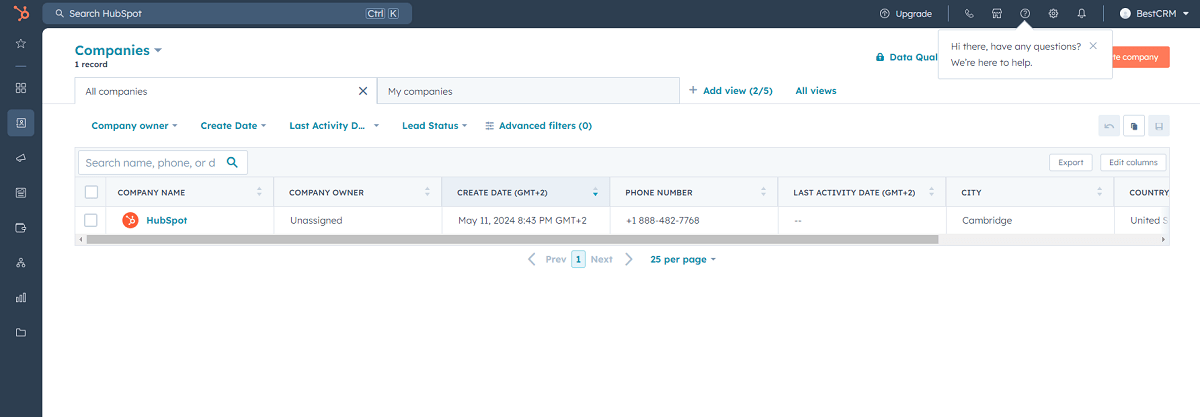
HubSpot is one of the most popular CRM software for its excellent sales tools. B2C companies have yielded significant results; deals have been created and closed within 12 months of joining this platform.
Why I Like It
It has all the educational resources users need for guidance. The blog, free courses, and ebooks equip users with the relevant knowledge to use the site effectively.
Most Important Features for B2C
It offers premium plans, with one available for free to small teams. These feature CPQ capabilities, sales engagement, deal management, coaching, and reporting and analytics tools. Also, its marketplace is filled with apps for users to integrate and power up your process of converting leads to sales.
Pros
- Over 1,400 third-party apps to integrate
- Offers B2C products suitable for small and large organizations
- Platform is easy to navigate and provides coaching if you get stuck
Cons
- You have to customize your account to one with B2C tools
Considerations for Small vs. Large Businesses:
As you can imagine, considerations for small and large businesses when selecting a B2C CRM aren’t the same. Small companies are usually looking to scale their organizations. Therefore, they want a CRM with relevant features and affordability. The aim is to get more sales and not waste funds.
Also, the platform they seek is not limited to CRM solutions, like Monday.com, because a small organization is also looking to expand its various departments. Also, a platform designed explicitly for small-medium enterprises can be great, especially regarding affordability. However, it can limit you later on as your business grows.
On the other hand, large companies look for a site that can handle hundreds of sales team employees utilizing the system to handle throughsants of clients. Therefore, the platform must have relevant tools, support, and complex features.
It must also be able to handle the in-depth operations of a large organization. These include company culture, employee preferences, and end-user skills. Other factors to consider are how tech-savvy your employees are, their comfort with change, and the structure and competencies of your business.
Conclusion
I would recommend many B2C CRM systems for businesses based on what they need in terms of scalability, customization, and affordability. Selecting one for a small-medium organization is more accessible than a large one. The small one needs to consider these elements and its future when choosing. However, a large and long-existing firm has many facets to consider before it maps out what it needs from a B2C CRM.




